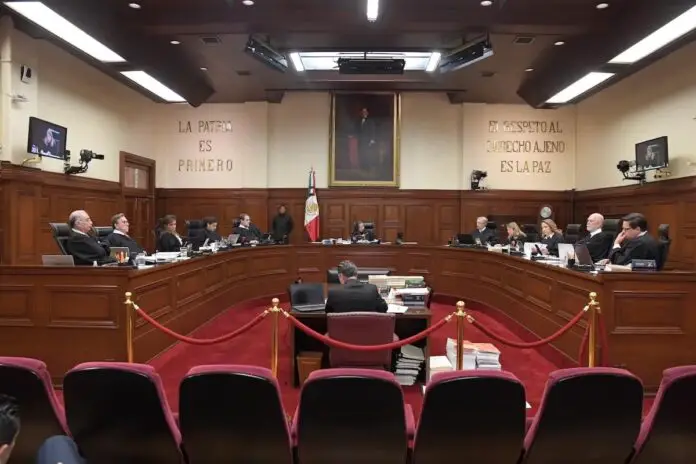In a landmark decision, Mexico’s Supreme Court has validated the country’s judicial reform, paving the way for the election of judges by popular vote. The ruling, which was finalized on Tuesday, marks the end of a months-long conflict between the judiciary and the ruling party, Morena.
Starting next year, Mexico will hold elections to choose all its judges at the federal and state levels. This includes around 1,700 federal-level judicial positions, including district judges, circuit judges, Electoral Tribunal judges, Judicial Disciplinary Tribunal judges, and Supreme Court ministers. The 32 states that make up the Republic will also elect their local judicial powers by popular vote.
The decision is a significant step forward for Mexico’s democracy, as no country of its size has ever held elections to choose all its judges. The National Electoral Institute (INE) has budgeted over $656 million for next year’s election and will be responsible for organizing the complex process.
The ruling party had pushed for judicial reform, arguing that the judiciary was plagued by corruption and privileges. However, the opposition parties argued that the reform would undermine the independence of the judiciary and the rule of law.
The Supreme Court’s decision was not without controversy. A draft ruling proposed limiting or reducing the number of judicial positions to be elected at the polls, but it was rejected in a plenary session of the Court. The majority of the ministers voted against the proposal, arguing that the Constitution is a set of general norms and that changes made to it by the Legislature can be reviewed through the action of unconstitutionality.
Minister Juan Luis González Alcántara’s project argued that the judicial amendment contradicts fundamental rules that make Mexico a federal and democratic republic. However, the minority in the Supreme Court rejected this interpretation, arguing that only Congress can modify the Constitution and that amendments cannot be reversed by the High Court.
The decision has been met with surprise, as Minister Alberto Pérez Dayán unexpectedly joined the ruling party bloc to reject the opposition’s appeal. The vote was four to seven, with the majority of the ministers voting against the proposal.
With this decision, the judicial reform is now set in stone, and there will be no further opportunities for it to be challenged. The ruling party has also hastily approved a new amendment declaring the norms contained in the Constitution unchallengeable by judicial means, effectively shielding them from review.
The implications of this decision are far-reaching and uncertain, marking a new institutional reality for Mexico that few are prepared for.
Source: El Pais






